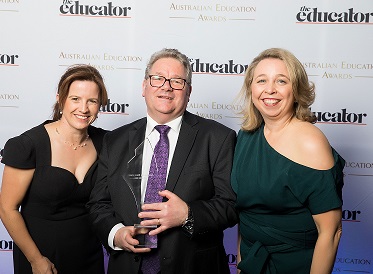
A student wellbeing report by youth mental health organisation Headspace found that 65% of 16-25 year-olds report high or very high psychological distress. Two-thirds found academic experiences in general to be very stressful.
With online bullying and the pressures associated with high-stakes exams taking their toll on young people, many schools are looking towards strengthening their wellbeing programs to ensure that their students are resilient, focused and happy.
One school that has been particularly effective in this context is Melbourne’s Carey Baptist Grammar School, which abides by a philosophy whereby the staff “walk beside their students rather than stand in front of them”.
The school’s wellbeing program is guided by the conceptual framework of Positive Education, where students are supported to identify and work from strengths, developing and enhancing abilities to help manage challenges and difficulties that confront them in their academic, social or personal lives.
Students are taught how they can empower themselves and take better control of their destiny through hope, optimism and positive change practices.
A multi-disciplinary dedicated and professional team comprising staff from Student Services, Chaplains, House staff and Careers Counsellors support student wellbeing.
In August, Carey Baptist Grammar School was recognised as having Australia’s Best Student Wellbeing Program at the inaugural Australian Education Awards.
The school’s head of student development, Shane Kamsner, said he was “ecstatic” to receive the award, which was presented at Dockside Sydney on August 17.
“I’m so proud of what we’ve achieved and what we’re trying to achieve, so this is recognition for what is a whole school approach, and recognition for the resources that have gone towards providing for our students,” Kamsner told The Educator.
“We try to facilitate wellbeing and change for our students, and we also have an integrated, multi-disciplinary approach to student learning and wellbeing.”
Kamsner said this is supported by a program that “educates but also responds to student needs”.
The school’s Student Services provides an “integrated support area” consisting of Counsellors and Psychologists, School Officers, Nurses and Administrative personnel.
This provides students with a safe place where they can receive help and direction when trying to manage social, emotional and medical challenges that impact on their academic, social or personal lives.
“Our wellbeing program is very broad, and is designed to encapsulate all students across all year levels,” Kamsner said.
Kamsner said the Awards were “a wonderful opportunity for schools to showcase what they’ve got, and a great opportunity to promote the wonderful work that educators do”.
“It’s also important to acknowledge all schools across the public, independent and Catholic sectors,” he said.


